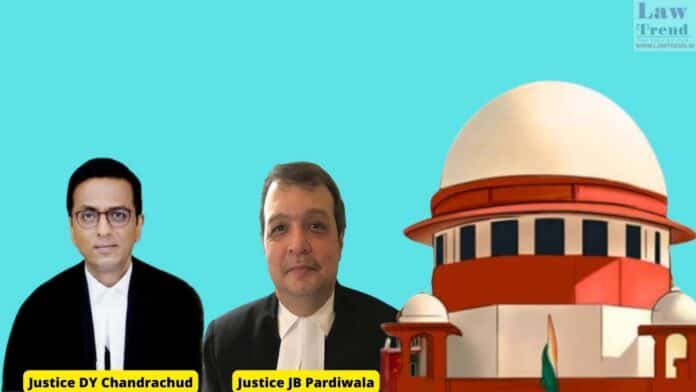The Supreme Court on Monday recommended that Parliament consider amending the Protection of Children from Sexual Offences (POCSO) Act to replace the term “child pornography” with “child sexual exploitative and abuse material” (CSEAM). This suggestion aims to more accurately represent the reality of such offences, according to a bench led by Chief Justice D Y Chandrachud and Justice J B Pardiwala.
In an interim measure, the Court also suggested that the Centre might introduce the amendment through an Ordinance. Additionally, the bench has directed that the term “child pornography” should not be used in any judicial orders or judgments, advocating instead for the use of CSEAM to describe such material.
The directive came alongside a landmark judgment by the apex court, which reaffirmed that both watching and downloading child pornography are punishable offences under both the POCSO and the Information Technology (IT) Acts. The court’s comprehensive 200-page verdict also highlighted the importance of implementing detailed sex education programs that tackle the legal and ethical implications of child pornography, aiming to deter potential offenders through education.
The Supreme Court emphasized the role of schools in early identification and intervention, suggesting the introduction of school-based programs to educate students about healthy relationships and consent. It proposed the formation of an expert committee by the Union of India to develop a comprehensive strategy for health and sex education and raise awareness about POCSO.
Support services for victims and rehabilitation programs for offenders were deemed essential by the court. These should include psychological counseling and therapeutic interventions to address underlying issues and promote healthier developmental outcomes. Furthermore, the Court recommended public campaigns to raise awareness about the realities and consequences of child sexual exploitation, aiming to destigmatize reporting and enhance community vigilance.
The decision to push for this amendment followed the Court’s decision to overturn a previous ruling by the Madras High Court, which had controversially stated that merely downloading and watching child pornography did not constitute an offence under the POCSO and IT Acts. This ruling was set aside, restoring criminal proceedings against individuals involved in such activities.




